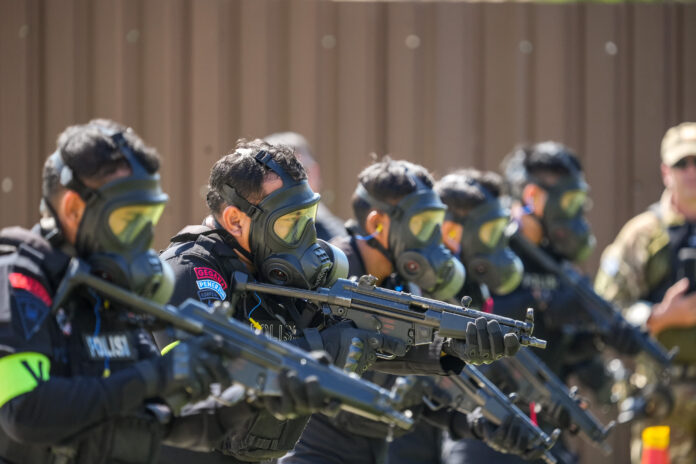By CBNW Magazine
CBNW Magazine presents a team profile of Indonesia’s leading national CBRN response unit, the Gegana Special Police Force Brimob Corps.
The CBRN unit of the Gegana Special Police Force Brimob Corps, Indonesian National Police was established in 2009. Known in Indonesian as Satuan KBRN Pasukan Gegana Korbrimob Polri, the team was initially a detachment of the Indonesian National Police and only became a fully-fledged unit in 2018. This change strengthened the CBRN unit’s capacities, personnel, equipment, and authority.
From its inception the team developed bomb disposal capabilities into CBRN capabilities, and today the CBRN unit executes high-level and high-intensity security and order disturbance missions especially against organized criminal groups that use chemical, biological, and radioactive materials.
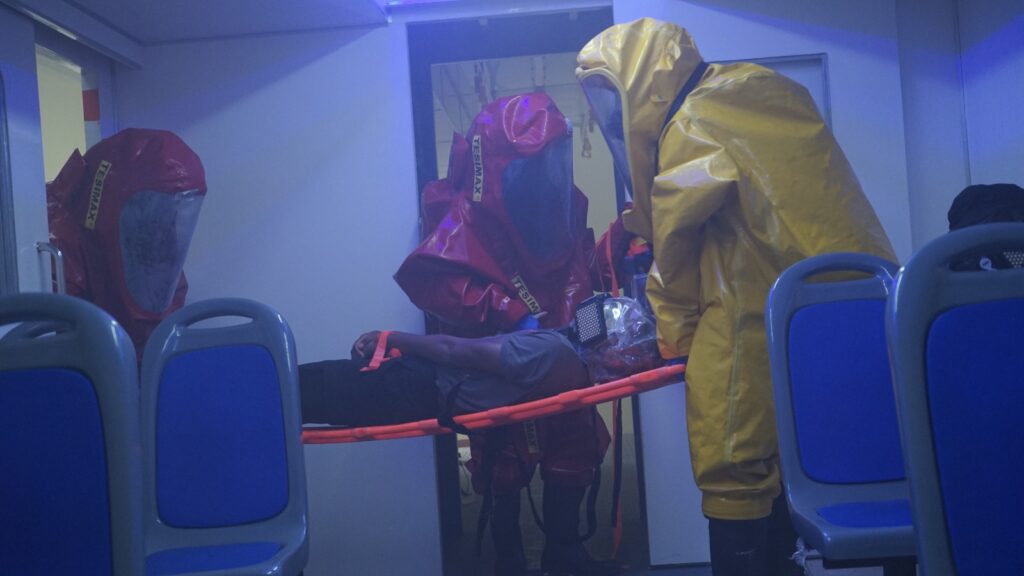
Response Missions
In November 2024, Gegana’s CBRN team was called to the north-western city of Banda Aceh to investigate the deaths of three construction workers in a small water reservoir measuring two by three meters and with a height of two meters. It was alleged that the construction workers had died from toxic gas poisoning after entering the reservoir, which had been sealed for two months.
The Commander of the Gegana CBRN team that responded to that incident confirmed the existence of the toxic gas, and, following an inspection of the reservoir, the commander ordered that a police cordon around the scene be established and the reservoir left open to safely release the toxic gas.
A chemical spill incident involving caustic soda occurred on the Purwakarta-Padalarang road in West Bandung Regency on December 24, 2024. In response, the Gegana Unit of the West Java Police deployed a CBRN team to collect samples from the spilled substance and the leaking tanker truck.
Equipped with personal protective equipment, the team traced the spill’s origin as having started in Cigentur and extending 8km to Cikamuning. They confirmed the chemical involved was sodium hydroxide (NaOH), which is corrosive and can cause skin irritation and respiratory issues if inhaled.
Another recent incident handled by the CBRN unit of Gegana involved radioactive waste in the form of cesium-137 dumped on a civilian field. During the mission to remove the waste and render safe the field, the CBRN unit collaborated with local government and competent radiological material authorities. It was a fairly large incident requiring considerable time and resource deployment. In addition to this, the CBRN unit of Gegana will often respond to chemical spills and gas explosions.
In February 2025, three personnel of the Gegana CBRN response team in Depok City, West Java, were awarded extraordinary rank increases for preventing a national nuclear emergency. Although no operational details of the mission were released, the award recognized the critical role that Gegana plays in CBRN security in Indonesia.
In addition to carrying out tasks related to the handling of CBRN materials, the Gegana CBRN unit also undertakes counter-terrorism operations throughout Indonesia in collaboration with the Anti-Terror Unit and the Bomb Disposal Unit. This is known as the Gegana Composite Unit. In addition, they are also involved in the security of national and international events taking place in Indonesia such as the G20 Summit, ASEAN Summit, and World Water Forum.
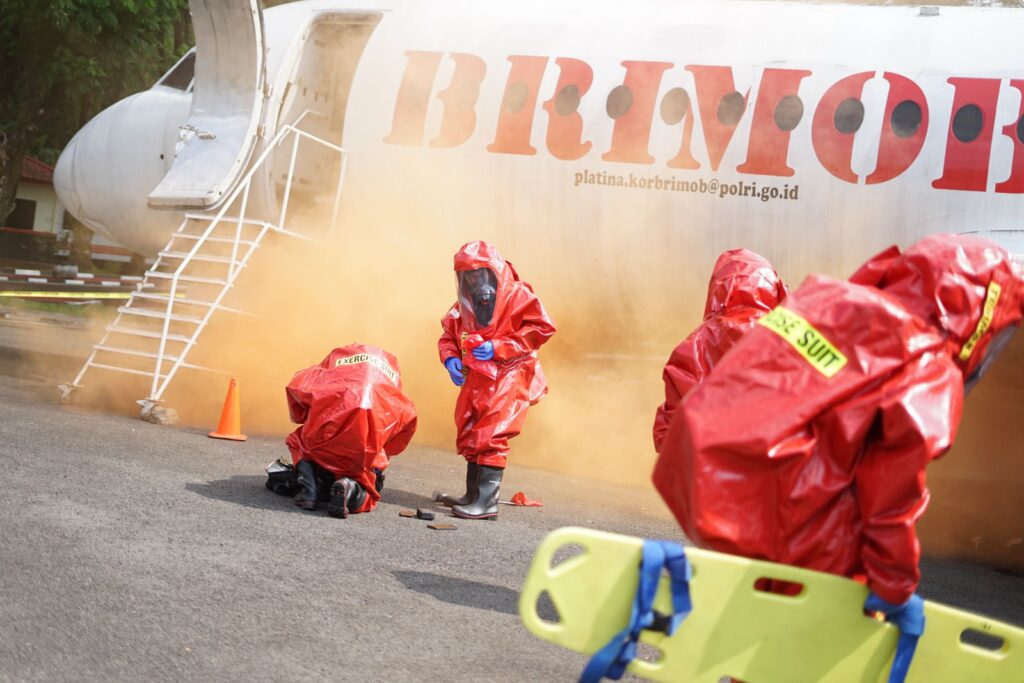
Operational Challenges
Gegana faces several operational challenges. In Indonesia there is a lack of awareness among the public and even other government agencies about the dangers posed by CBRN materials. This can undermine CBRN threat prevention measures as well as complicate response operations. A lack of knowledge among the public about CBRN threats can result in inconsistent or inaccurate reporting, frustrated crisis communication and management of civilians, excess human and environmental casualties, and additional resource deployment. In particular, Gegana often faces difficulties in detection and identification processes caused by positive and negative false alarms.
Although whole-of-government strategies concerning CBRN preparedness and defense are of course valuable, it is equally important to recognize that civilians will often be the first victims of any given CBRN incident before government authorities can respond. Therefore, addressing this lack of general knowledge about CBRN threats must be addressed through greater whole-of-society public education programs.
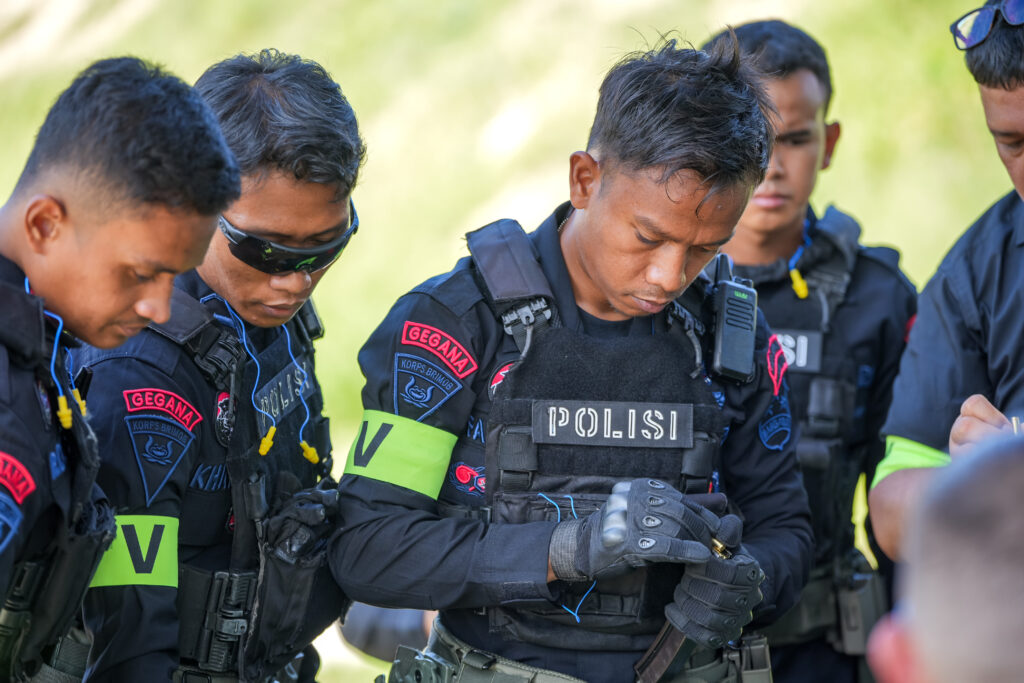
Industry, Equipment, and Exercises
The CBRN unit of Gegana Indonesia National Police uses a wide range of masks and respirators, PPE, decontamination apparatus, detection and identification equipment, and sampling and analysis equipment.
They use SCBA, PAPR, and APR masks and respirators from Avon Protection, as well as from SCOTT and Dräger. They use level A and level C PPE from Dräger, Tychem, Lion Protect and Blauer, while they use Cristanini decontamination apparatus.
For detection and identification, the team uses an LMV detection vehicle from Cristanini, a ChemPro-X from Bertin Environics, the lightweight LCD 3.3 chemical warfare agent and toxic industrial chemical detector from Smiths Detection, as well as Thermo Fisher Scientific equipment for radiological detection.
For sampling and analysis, they use a HazMatID Elite hand-held chemical identifier from Smiths Detection, Serstech chemical identification, and a RAZOR EX biological detection system from BioFire Defense. Gegana’s CBRN unit also uses unmanned systems from Med-Eng.
Industry involvement is crucial in helping Gegana overcome some of their operational challenges. Industry can help by developing equipment that is easier to operate in difficult conditions, for example when operators’ mobility and tolerance to extreme heat or humidity – a risk factor in Indonesia – is restricted by PPE. They believe that this can be achieved by more frequently involving operations in the development of detection and identification equipment.
Gegana’s CBRN unit often takes part in both national and international training exercises. These have been organized, among others, by the Indonesian National Counter Terrorism Agency, the U.S. Department of State’s Diplomatic Security Service’s Anti-Terrorism Assistance program, INTERPOL, the International Atomic Energy Association, the Organisation for the Prohibition of Chemical Weapons, and NCT Consultants.
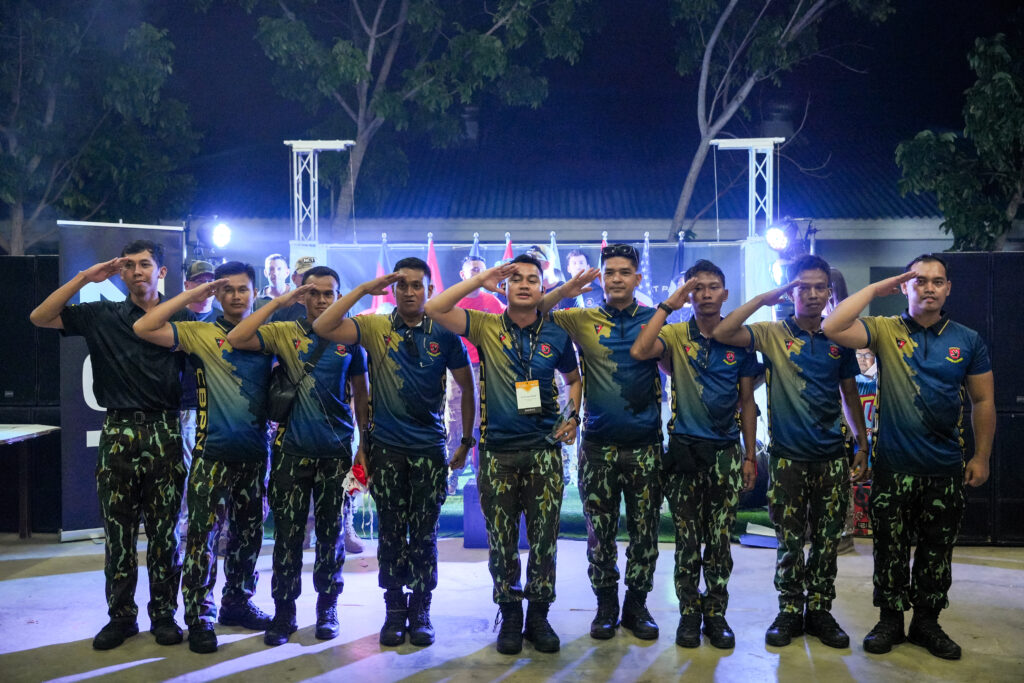
Gegana Indonesia National Police at NCT PRO Challenge
Gegana has twice participated at NCT PRO Challenge Asia in Hua Hin, Thailand, the only multinational CBRNE training event in which first responders train in realistic scenarios using the latest technologies provided by sponsoring companies.
Demonstrating advanced capabilities in detection, identification, and decontamination in numerous high-intensity scenarios – including targeted raids and live-fire CBRN exercises – Gegana won NCT PRO Challenge Asia 2024, coming ahead of other impressive teams from Thailand, Cambodia, Malaysia, Singapore, and Republic of Korea.
Gegana Indonesia National Police is slated to participate in the next edition of NCT PRO Challenge Asia, scheduled to take place in Hua Hin, Thailand, on December 16-19, 2025.
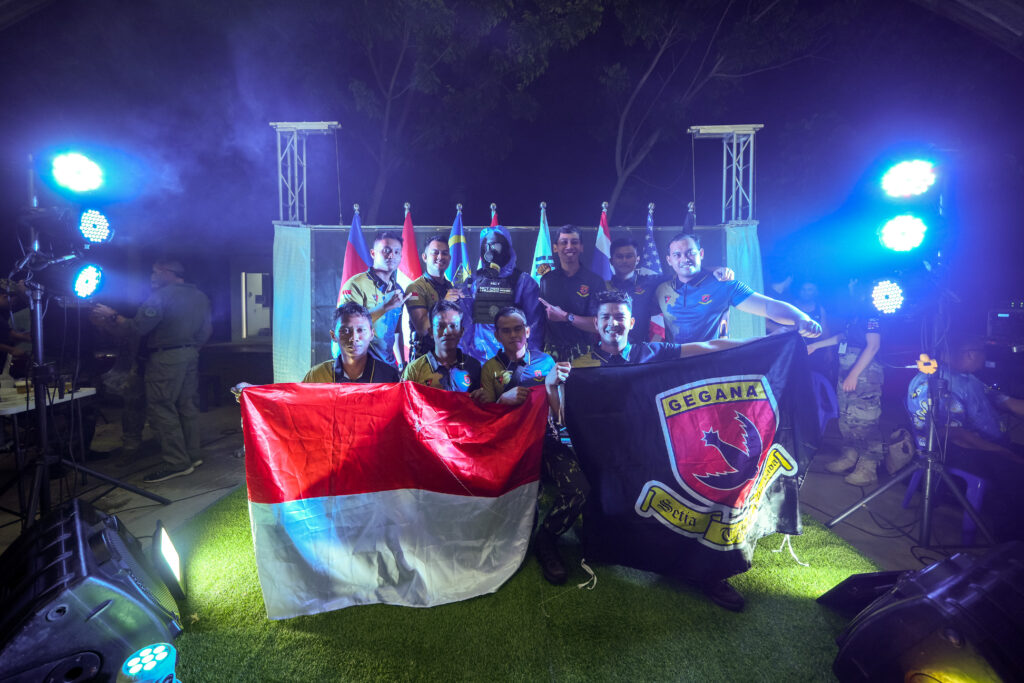
CBNW Magazine thanks Grand Commissioner Yopie Indra Prasetya Sepang, Commander of the Gegana CBRN unit, and Albertus Digwijaya, Gegana’s Detachment A Commander, for assisting in the production of this team profile. If you would like your CBRNE team to be featured in CBNW Magazine, please contact [email protected].


